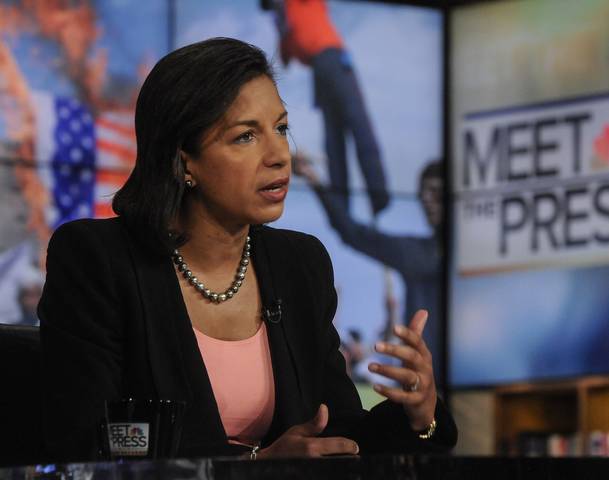This week, President Obama is expected to pick Hillary Clinton’s successor at the State Department. His announcement will be made against the backdrop of the assault on the U.S. consulate in Benghazi, Libya on September 11. Following the attack, Susan Rice, ambassador to the United Nations, was dispatched by the Obama administration to give several high profile interviews. During those interviews, she claimed the attack began as a protest against an anti-Muslim video produced in California. That claim was discredited when it came to light it was carefully planned by extremists.
Don’t worry, you’re still reading a public relations blog, not an excerpt from Foreign Policy. The Rice/Benghazi affair is an instructive example of how the news cycle often works. The story originated with a newsworthy event, erupted as a result of a communications miscalculation and then was fueled by skeptics capitalizing on the missteps. Below is a rundown of what happened.
Wednesday, Nov. 14: At about 9 a.m., Senators John McCain and Lindsey Graham were interviewed at the Washington Ideas Forum, a two-day event in D.C. featuring various government and business leaders. During the interview, they revealed their intent to block Susan Rice’s confirmation if she is nominated secretary of state by President Obama.
Later in the day, the president vigorously defended Rice at a White House news conference: “If Senator McCain and Senator Graham, and others want to go after somebody, they should go after me. And I’m happy to have that discussion with them. But for them to go after the U.N. ambassador who had nothing to do with Benghazi and was simply making a presentation based on intelligence that she had received, and to besmirch her reputation is outrageous.”
After Obama’s press conference, Senator Graham showed no signs of backing down: “Mr. President, don’t think for one minute I don’t hold you ultimately responsible for Benghazi. I think you failed as commander in chief before, during and after the attack. Given what I know now, I have no intention of promoting anyone who is up to their eyeballs in the Benghazi debacle.”
After this opening volley, Rice began a concerted effort to defend her reputation and save her appointment.
Nov. 22: In a statement to reporters at the United Nations, Rice explained her comments after the Benghazi attack: “I relied solely and squarely on the information provided to me by the intelligence community. I made clear that the information was preliminary and that our investigations would give us the definitive answers.”
Nov. 25: Advantage Rice; McCain appeared to back off his threat. On Fox News Sunday, McCain said he would “be glad to have the opportunity to discuss these issues with her.”
This was Rice’s chance to reverse the tide of criticism. If she could convince McCain and his colleagues that their concerns with her are undeserved, she would probably have an office in Foggy Bottom.
Nov. 27: Rice met with Senators McCain, Graham and Kelly Ayotte, Republican from New Hampshire. The meeting did not go well for Rice. Senator Ayotte spoke with media immediately afterwards: “When you’re ambassador to the United Nations you go well beyond unclassified talking points in your daily preparation responsibilities for that job and that’s troubling to me as well.” McCain and Graham said they were even more concerned than before their meeting.
There are many lessons the Rice/Benghazi situation can teach, including how high the stakes can be for individuals and organizations when making statements to the media. Rice worked her entire career for the top diplomatic job in the nation, but a few poorly planned interviews may cost her that opportunity.
Below are a few more lessons we can take from this story.
Know the facts. Rarely is the need to make a statement to the press so urgent that you cannot take the time to gather facts beforehand. Even if a publication is going to press, don’t tell them what you think is true before it is substantiated; let them know you are looking into the matter and will report back as soon as you can. Issue a placeholder statement instead, relating your commitment to uncovering the truth.
Avoid taking public positions from which you may need to back down. Senator McCain is known to be hot-headed, so it was not a surprise when he threatened to derail Rice’s nomination. Once Rice began defending herself, he was forced to soften his position and admit the possibility that she could satisfactorily explain her comments. When issuing public statements, you can be firm without drawing a line in the sand.
Finally, if you are about to make news – and McCain and Graham surely knew they would when they sat down with Jonathan Karl at the Washington Ideas Forum – take a moment to map out how the story could play out. Be honest with yourself about how your comments will be received by reporters, the public and your opponents. If you are starting an argument, there is no excuse for getting caught flat-footed by a fiery response from the opposition. Graham appeared fully prepared for the President’s firm defense of Rice.
Perhaps the most important takeaway from this story is a cautionary one: in public spats, there will always be a winner and a loser. Barney Frank offered this gem during the Washington Ideas Forum that surely applies: “Never write when you can talk, never talk when you can nod, never nod when you can wink.” Whether Rice or McCain end up the loser, perhaps both deserve some blame for talking too much.

 As design director at Cookerly, Tim serves as the creative lead in the development of branding campaigns, print collateral and digital media for clients across a broad range of industries, including consumer, professional services, healthcare and technology.
As design director at Cookerly, Tim serves as the creative lead in the development of branding campaigns, print collateral and digital media for clients across a broad range of industries, including consumer, professional services, healthcare and technology. As senior vice president at Cookerly, Mike Rieman specializes in building and maintaining relationships with the media and has an excellent track record of landing significant placements in print and broadcast media including USA Today, Wall Street Journal, Bloomberg and Money Magazine.
As senior vice president at Cookerly, Mike Rieman specializes in building and maintaining relationships with the media and has an excellent track record of landing significant placements in print and broadcast media including USA Today, Wall Street Journal, Bloomberg and Money Magazine.

 As vice president of Cookerly, Sheryl Sellaway uses her extensive corporate communications background to lead consumer PR efforts, deliver strategy for marketing programs and share expertise about community initiatives.
As vice president of Cookerly, Sheryl Sellaway uses her extensive corporate communications background to lead consumer PR efforts, deliver strategy for marketing programs and share expertise about community initiatives.
 As a senior vice president at Cookerly, Matt helps organizations protect and advance their reputations and bottom lines through strategic communications programs. Using creativity, planning and flawless execution, he works with a team to deliver compelling public relations campaigns that produce results and support clients’ business objectives.
As a senior vice president at Cookerly, Matt helps organizations protect and advance their reputations and bottom lines through strategic communications programs. Using creativity, planning and flawless execution, he works with a team to deliver compelling public relations campaigns that produce results and support clients’ business objectives.